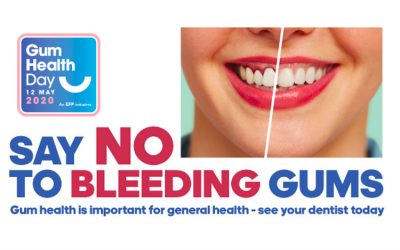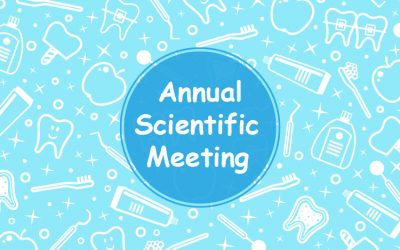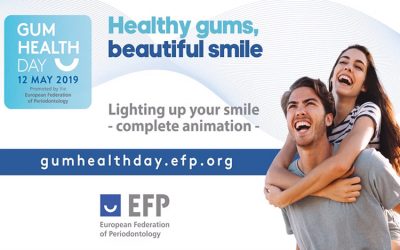Perio Master Clinic 2017 Part 1
The EFP Perio Master Clinic 2017: Peri-implantitis – from aetiology to treatment, which took place in Malta on March 3 and 4, proved to be a great success as participants made the most of the opportunity to get up to date with the latest scientific findings about peri-implantitis and new approaches to its treatment.
Attendance at Perio Master Clinic 2015 was “well over 500”, according to Korkud Demirel, chair of the organising committee. He noted that participants came from all 29 countries with national perio societies affiliated to the EFP, plus 27 other countries – 56 countries in all.
The success of the event, organised by the Turkish Society of Periodontology on behalf of the EFP, came despite the challenge posed by changing the venue from its original location of Istanbul.
“Despite the fact that the meeting was relocated to Malta, the Turkish Society of Periodontology and the EFP fulfilled the expectations of participants,” said Prof. Demirel.
He highlighted the fact that the innovative approach to scheduling – whereby participants indicated at the time of registration the key questions that interested them – meant that all these questions were addressed in the master clinic’s presentation and discussion sessions.
Unlike the first Perio Master Clinic in Paris three years ago, the Malta event featured an exhibition, which Demirel said was “very much appreciated by the participants – having coffee and lunch in the exhibition area made it possible to build up fruitful networking possibilities between participants and industry. The weather was sunny and pleasant, and participants were also able to enjoy the old city of Valletta.”
Keynote lecture
After an opening address by Prof Demirel followed by a keynote lecture from Niklaus Lang on early diagnosis, which makes cases of peri-implantitis much easier to handle, participants at Perio Master Clinic 2017 took part in six sessions dedicated to key issues concerning peri-implantitis.
The first session addressed the prevention of peri-implant disease. Moderated by Bahar Eren Kuru (Yeditepe University, Istanbul, Turkey), this session featured a presentation from Nicola Zitzman (University of Basel, Switzerland) on combining aesthetics and good cleansability, exploring how to design the “optimal superstructure”, followed by one from Giovanni Salvi (University of Bern, Switzerland) on non-surgical therapy and the question of whether antimicrobial and laser therapy represent the future.
The following session on the morning of Friday, March 3 explored the possibility of reducing the risk of peri-implant diseases by improving soft tissues adjacent to implants.
Moderated by Anton Sculean (University of Bern, Switzerland and an elected member of the EFP executive committee), the session featured presentations from Sofia Aroca (University of Bern, Switzerland) on how to increase the zone of keratinised tissue at implants, and from Otto Zuhr (private practice, Munich) on how to increase soft-tissue thickness at implants.
On the afternoon of Friday March 3, the focus was on soft-tissue recession and resective surgical approaches. In the session “Soft-tissue recession at implants” – moderated by Mariano Sanz, chair of the EFP’s workshop committee – Giovanni Zucchelli (professor of periodontology, Bologna University, Italy) addressed the topic of how to handle soft-tissue recessions in the aesthetic zone, and Jean-Louis Giovannoli then offered a step-by-step guide to approaching the combination of dehiscence defects and peri-implantitis.
The session “Resective surgical approaches – when are they an option?” – moderated by Frank Schwartz (professor of oral medicine and peri-implant infections at Heinrich Heine University in Düsseldorf, Germany) – focused on pocket reduction in areas with fewer aesthetic demands and on surgery that makes teeth and gums more cleansable, together with the question of whether the modification of implant surfaces is the “therapy of choice”.
The use of resective surgery to reduce probing depth and make it easier to clean teeth and gums was addressed by Joerg Meyle (EFP treasurer and professor and chair of the department of periodontology at the University of Giessen in Germany). Ausra Ramanauskaite (Lithuanian University of Health Sciences, Kaunas, Lithuania) then gave a presentation on the surface modification of implants, a technique also known as implantoplasty.
Big challenges
One of the big challenges that confronts periodontists in tackling peri-implantitis is what to do when lesions develop around infected implants, especially if these are in the aesthetic zone. While regenerative techniques can be applied in these situations, there is as yet no standard treatment, although there are several promising approaches.
This important topic was the subject of the first session on Saturday, March 4, moderated by Ioannis Polyzois (director of the postgraduate course in periodontics at Trinity College Dublin, Ireland). One promising approach, discussed in detail by Marc Quirynen (head of periodontology and oral microbiology at the Catholic University of Leuven, Belgium), is the use of Leucocyte-Platelet Rich Fibrin (L-PRF) for grafting.
Also speaking in this session was Mario Roccuzzo (lecturer in periodontology at the University of Turin, Italy), who addressed regenerative surgical treatment of peri-implantitis using membranes and different bone-augmentation procedures.
The final session of presentations involved treatment plans for advanced cases of peri-implantitis. Moderated by Moshe Goldstein, chair of the EFP’s postgraduate education committee, this session featured a presentation from Pascal Valentini (programme director for European postgraduate oral implantology at the University of Corsica) on what happens if the “man-made bone” gets infected.
This was followed by a presentation from Mauro Merli (a visiting professor at the Università Politecnica della Marche in Ancona, Italy) on how to handle hard- and soft-tissue defects following the removal of an implant.
To round off Perio Master Clinic 2017, there was a discussion session, moderated by scientific chair Stefan Renvert, in which all the moderators summed up their sessions.
Assessing the two-day event, Korkud Demirel said: “Participants had the chance to discuss and understand the full spectrum of peri-implant diseases, and prevention.
“The Perio Master Clinic meetings are purely clinical with a strong scientific basis. On the one hand, they help clinicians to meet science with state-of-the-art clinical practice and, on the other hand, they help the EFP serve its members and the perio world on all possible perspectives.”


